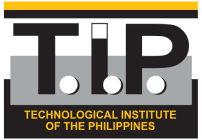

The College of Education aspires to produce knowledgeable, caring, competent and responsible teachers who will excite the interest of every elementary student towards exploration of the path to lifelong learning.
The College conforms to the New Teacher Education Curriculum where students are provided with actual learning experiences and training gradually immersing them to the real world of teaching.
PROGRAM EDUCATIONAL OBJECTIVES
Three to five years after graduation, the Bachelor of Special Needs Education alumni shall:
- have advanced their practice or achievement in the field of Special Needs Education and/or other endeavors or advocacies supported by their acquired education;
- strive to be globally competitive through
- living by the T.I.P. mission values, pursuing continuing education, and practicing continuous quality improvement (CQI) in their personal lives;
- continuously scanning, adopting and building on the best practices in their field.
STUDENT OUTCOMES
By the time of graduation, Education students will be able to:
- explain the philosophical, socio-cultural, historical, psychological, and political bases of teaching-learning practices;
- demonstrate mastery of the subject matter/discipline;
- articulate and discuss the latest developments in teaching as a teacher;
- demonstrate a variety of thinking skills in planning, monitoring, assessing, and reporting learning processes;
- apply skills in the development and utilization of ICT to promote quality, relevant, sustainable educational practices;
- effectively communicate orally and in writing using both English and Filipino;
- develop innovative curricula, instructional plans, teaching approaches, and resources for diverse learners;
- preserve and promote “Filipino historical and cultural heritage” (based on RA7722);
- practice the professional and ethical requirements of teaching profession;
- demonstrate a service-orientation in one’s profession* (common to a horizontal type as defined in CMO No. 46, s. 2012);
- recognize the need for, and prepare to engage in lifelong learning;
- function effectively as an individual, and as a member or leader in diverse teams and in multidisciplinary and multi-cultural settings.




